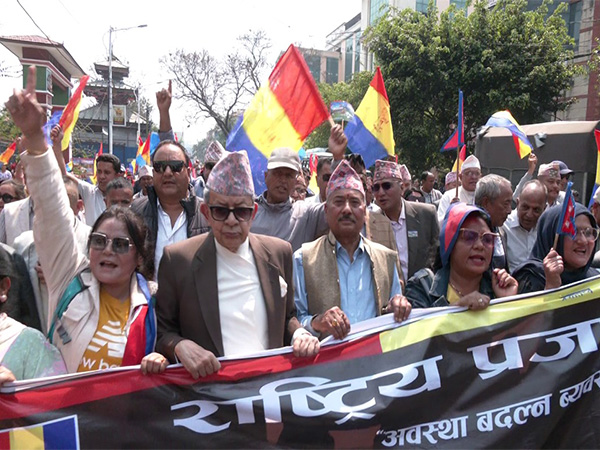Tensions Rise in Nepal as Monarchists Demand Release of Arrested Leaders
Monarchists in Nepal led by the Rastriya Prajatantra Party continue protests demanding the release of arrested leaders after clashes with police. Amid growing calls for reinstating the monarchy, demonstrators seek Nepal's recognition as a Hindu state, challenging the current federal democratic setup established post-2006.

- Country:
- Nepal
Monarchists aligned with the Rastriya Prajatantra Party (RPP) have maintained their protests across Kathmandu following a violent clash with police last week. Their demands now include the release of detained leaders Rabindra Mishra and Dhawal Shamsher Rana. On Friday, crowds of royalists marched from the iconic replica Dharahara tower to Shanti Batika, chanting for the leaders' release.
The protesters are advocating for the release of Mishra and Rana, who were arrested after a clash on March 28, which resulted in two deaths and numerous injuries. Rajesh Bhattarai, a protester, emphasized their primary demand for the immediate release of the leaders, contending that the charges against them are baseless. Additionally, the group advocates for scrapping the federal system, reinstating a monarchy, and reviving a multiparty system.
The arrested leaders face charges related to inciting violence near Tinkune airport. Meanwhile, another involved individual, Durga Prasai, remains at large. The ongoing demonstrations also demand declaring Nepal a Hindu state and a thorough investigation into the events of March 28. Calls for reinstating the monarchy have grown in recent years, with the RPP leading the charge.
Pashupati Shamsher JB Rana, a former RPP chairman, argues for a ceremonial monarchy alongside a democratic system, citing models like the United Kingdom. The RPP, formed in the 1990s, remains a pro-monarchy force participating in Nepalese elections. Despite fluctuations in their parliamentary presence, they continue advocating for a Hindu state intertwined with monarchical rule.
Nepal's constitutional monarchy ended in 2006 after King Gyanendra's controversial rule led to widespread protests and international pressure. The ensuing political movement, 'People's Movement II', marked a shift towards democracy in Nepal, with the country ultimately abolishing the monarchy in 2008.
(With inputs from agencies.)
ALSO READ
Israel's Judicial Reform Sparks Protests and Controversy
Punjab Farmer Leader Ends Hunger Strike Amid Protests
Victory for the Voiceless: Roadblocks Cleared as Farmers' Protests Yield Results
Media Crackdown Amplifies as Journalists Arrested Amid Protests
BJP Criticizes Mamata Banerjee's UK Speech Amid Protests










